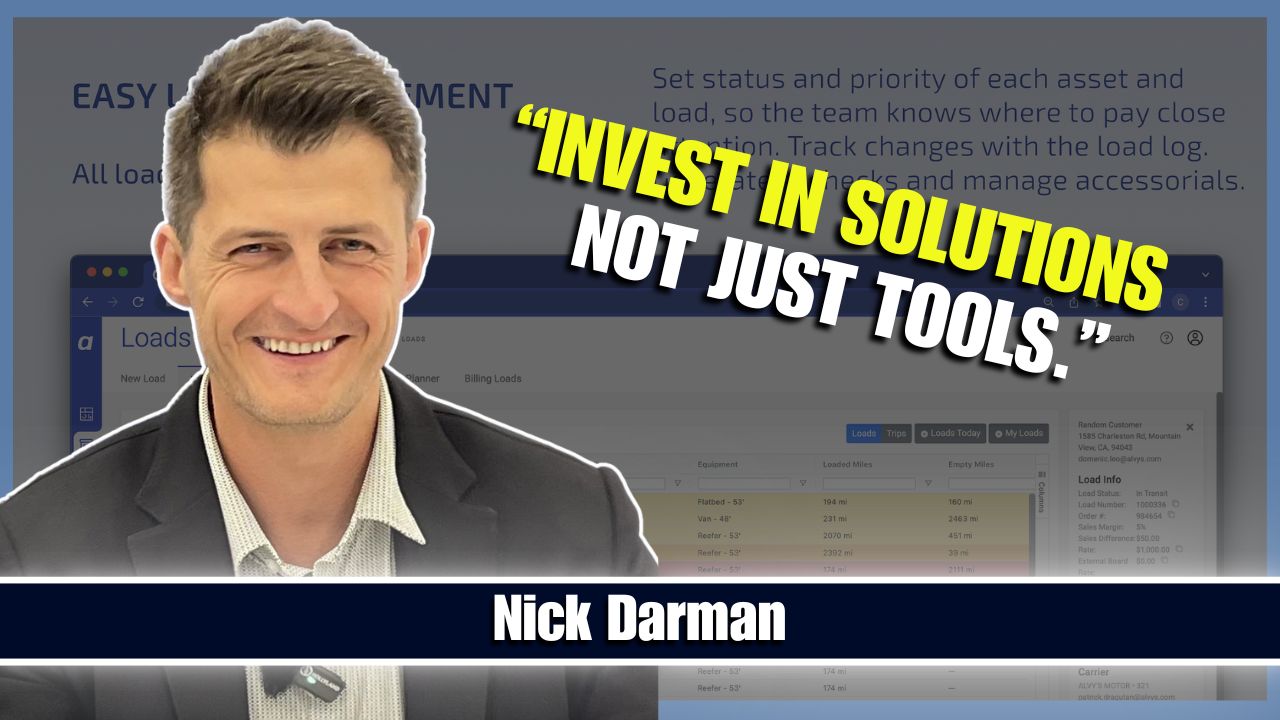In today’s logistics industry, where speed and volume often outshine values, Steve built his freight brokerage differently. Instead of chasing shortcuts or gaming the system, he focused on honesty, consistency, and doing what’s right every time. For aspiring freight brokers and trucking entrepreneurs, his path offers a clear blueprint: build trust, invest in relationships, and operate with integrity.
Understanding the Freight Brokerage Landscape
The Role of a Freight Broker
Freight brokers serve as the critical link between shippers and carriers. Their primary responsibility is to match freight with reliable transportation solutions. In a fast-moving supply chain, brokers help reduce inefficiencies, optimize routes, and ensure loads are handled professionally. By keeping loads moving smoothly, freight brokers play a strategic role in keeping the supply chain functional and competitive.
They also provide administrative relief to both carriers and shippers, managing paperwork, negotiating rates, and handling claims when necessary. Their expertise can help businesses navigate complex logistics networks and respond swiftly to changing demand, making freight brokers indispensable players in modern transportation.
Importance of Freight Brokers in the Supply Chain
By bridging logistics gaps, freight brokers enhance delivery performance, reduce deadhead miles, and stabilize capacity. Their ability to find capacity during tight markets and provide coverage during peak seasons helps shippers avoid costly delays and missed deliveries. As a result, they play a pivotal role in maintaining consistency and cost-efficiency in the trucking business.
Freight brokers also ensure better utilization of resources by balancing supply and demand across geographic regions. This leads to optimized fuel consumption, fewer carbon emissions, and improved sustainability. In an industry where timing and coordination are critical, brokers bring visibility and adaptability to the supply chain.
Key Players in the Freight Brokerage Industry
Major brokerage firms, independent freight agents, and small-to-midsize brokerages all contribute to the ecosystem. Some brokers operate under larger umbrella firms, while others manage their own book of business independently. Regardless of structure, trust remains the differentiator. Reputation management and ethical practices set top performers apart and help build long-term partnerships.
The landscape also includes digital freight platforms and load board aggregators that enable real-time load matching. While technology levels the playing field, it is the human element: relationship-building and integrity, that sustains long-term success. A strong personal brand, supported by operational excellence, is what sets the best brokers apart.
The Importance of Integrity in Freight Brokerage
Building Trust with Clients and Carriers
Steve’s approach centered on never making promises he couldn’t keep. He prioritized honest communication with both shippers and carriers, even when it cost him a short-term deal. Over time, this transparency earned loyalty and referrals. Trust reduces disputes and enables brokers to work through problems constructively.
Trust also allows for more collaborative problem-solving and long-term contract negotiations. Carriers and clients appreciate a partner who communicates proactively and takes ownership of issues. This dependable reputation becomes your most valuable asset in a competitive industry.
Long-Term Benefits of Honesty and Transparency
Honest brokers avoid pitfalls like double brokering or misrepresenting carrier credentials. These practices might yield quick gains, but they erode trust and expose a business to legal and financial risks. Steve built his business on consistency and doing the right thing every time, which made him a preferred partner for long-term contracts.
Transparent practices reduce liability and foster goodwill. When problems arise, clients are more likely to stay loyal if they trust the broker’s intentions. Over time, this approach helps build a resilient and profitable operation grounded in real relationships, not one-time transactions.
Case Studies of Successful Brokers Who Prioritize Integrity
Brokers who prioritize ethics consistently outperform competitors over the long haul. They build a resilient book of business, reduce claims, and maintain stronger carrier relationships, even in volatile markets. Firms known for integrity attract top-tier carriers and enjoy higher customer retention.
For example, a Midwest-based brokerage that refused to cut corners during a market downturn retained 90% of its clients while competitors folded. Another broker who invested in carrier vetting and transparent pricing saw their claim rate drop by 70%, strengthening both margins and trust.
Essential Steps to Establish a Successful Freight Brokerage
Developing a Business Plan
Every freight broker startup needs a clear business plan. Include your niche, customer segments, and pricing strategy. Financial projections should reflect operating costs, insurance, bond requirements, and a 6-12 month runway. A solid plan lays the groundwork for your operations, compliance, marketing, and staffing.
Your business plan should also outline competitive analysis, growth milestones, and key metrics for success. Don’t forget to revisit your plan quarterly to ensure alignment with market conditions. Having a dynamic plan helps secure investor confidence and guides your decision-making.
Setting Realistic Goals and Objectives
Define short- and long-term benchmarks, from client acquisition to gross margin targets. Setting measurable goals helps brokers evaluate progress and make data-driven decisions. Track them monthly and adjust strategies as needed to ensure sustainable growth.
SMART goals: specific, measurable, achievable, relevant, and time-bound—help ensure you stay focused. Consider including goals for technology implementation, carrier onboarding, and customer satisfaction scores. Consistent goal-setting leads to better forecasting and results.
Financial Projections and Budgeting Considerations
Anticipate early-stage cash flow constraints. Use a factoring company for invoice financing. Build in tech investments such as TMS software and load boards. Include freight broker startup cost breakdowns such as freight broker license cost, freight broker insurance cost, and bonding fees. Forecasting expenses helps avoid surprises.
Maintain a monthly cash flow statement to monitor liquidity. Set aside contingency funds for unexpected expenses like legal disputes or late payments. Financial discipline early on prevents costly missteps and positions your business for stable growth.
Legal and Regulatory Requirements
Necessary Licenses and Permits for Freight Brokerage
To operate legally, brokers need a Motor Carrier (MC) Number and USDOT Number from the FMCSA. A $75,000 surety bond (or trust) is also mandatory. Understanding the total freight broker license cost early can prevent delays. Start the licensing process early and ensure all documents are accurate.
Additionally, you’ll need a BOC-3 filing (Designation of Process Agent) and a registered business entity in your operating state. Each step has its own timeline and documentation, so project manage this carefully to avoid gaps in compliance.
Understanding the FMCSA Regulations
FMCSA regulations govern broker conduct, advertising, and recordkeeping. Stay compliant to avoid penalties or revocation. This includes aligning with federal motor carrier safety protocols and keeping up with motor carrier safety standards. Frequent audits and reviews will keep your operation compliant.
Regulations also cover issues such as load tracking requirements, non-discrimination clauses, and dispute resolution processes. Make sure your entire team understands their regulatory obligations to maintain consistent compliance.
Importance of Insurance and Bonding in Freight Brokerage
Besides the surety bond, errors and omissions insurance, contingent cargo coverage, and general liability insurance are vital for risk mitigation. Know your freight broker insurance cost ahead of time and budget for coverage renewal. Proper insurance coverage builds trust with partners and protects your business.
Failure to maintain coverage can result in license suspension or revocation. Review policies annually and adjust limits as your operation grows. Insurance should be seen as a proactive investment, not just a regulatory checkbox.
Ready to Start or Grow Your Trucking Career?
If you’re starting a trucking business or growing your fleet and need expert insights, reach out to us today. Our partners can help you make the right decisions for long-term success. Your career change to trucking doesn’t have to be daunting. With the right resources, support, and mindset, it can be the best move you ever make.



